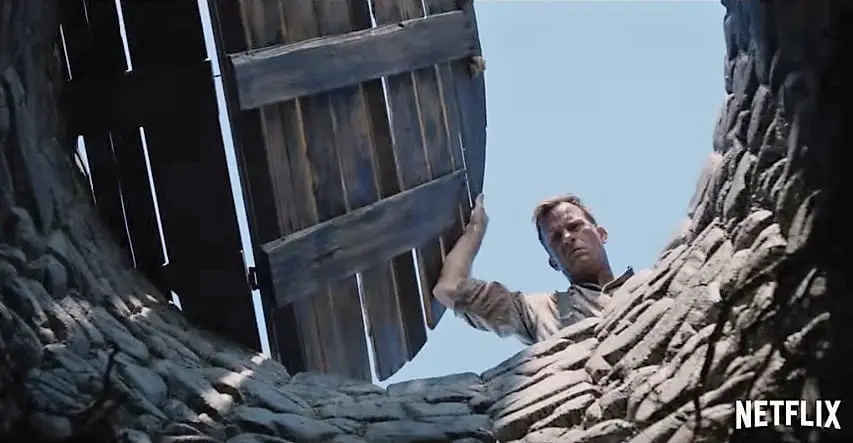Review for Netflix’s adaptation of Stephen King’s 1922
It’s a good time to be a Stephen King fan if you are following current media trends. With the recent release of titles like IT and The Gunslinger, it seems like King is set to inspire fear and adventure into the hearts of a whole new generation. I’ve consumed my fair share of King novels, short stories, and film adaptations and have come to appreciate his “brand,” for lack of a better term. Although 1922 may be below-the-radar for most casual viewers, it’s sure to gain some recognition and attention from psychological horror fans in general. Netflix’s adaptation, based on the King novella of the same title, brings a chilling tale of murder, paranoia and isolation to life in a simple, grim, well-shot period piece.
To Whom it may concern: My name is Wilfred Leland James, and this is my confession…
The adapted screenplay, written by Zak Hilditch, introduces our narrator and protagonist, Wilfred James as he pens a confession from a hotel room in Omaha. We are then transported back to 1922, the year he committed an unforgivable sin…
Wilfred’s wife Arlette James has just inherited a hundred-acre farm in Nebraska afterher father’s passing. The bank has offered her a very hefty sum for the land in order to sell it off to a pork rind company. Her stone-faced husband isn’t too keen on the idea, and the inciting incident reveals the dynamic of Wilfred and Arlette’s relationship.
They don’t exactly get along. In fact, with the news of the inheritance, we come to find out that the James’s are on the cusp of divorce. Arlette wants to sell and move to the city to start her own dress shop. It is her money, after all. She’d give Wilfred half the money and take their son Henry to live with her. He stubbornly refuses the offer and wants to make things as difficult as possible for her. I’m sure their relationship has been long, arduous, and complex (their son is 14) but we as an audience are only privy to the uncomfortable passive aggression that accompanies a failing, resentful marriage.
The dialogue for much of the first act is rather simplistic and heavy on exposition. Luckily, the performances of our main cast within a very authentic-looking set piece, elevate the film and offer some compelling tension and curiosity. The central conflict of the first act revolves around both parents doing their best to manipulate Henry into taking their respective side.
In her portrayal of Arlette, Molly Parker (House of Cards, Deadwood) once again plays a woman whose alluringly kind, maternal features contrast sharply with her ambitious, perhaps even conniving character. Arlette’s situation, however, is more sympathetic than sinister. She’s living an unfulfilled life in a terrible marriage, isolated from society, and her husband is preventing her (emotionally, at first) from starting a new life. She’s written as a rude woman who seemingly doesn’t care that she’s splitting up her family and ruining their lives, and from her the hard-working, uneducated husband’s perspective, she is evil. This drives the clearly unbalanced Wilfred to plot her death.
“I believe there’s another man inside of every man…”
Motivation and Tropes
The problem I have with the murder as a whole is the motive. Dylan Schmid portrays the son Henry as fairly normal and well-adjusted. He’s obviously a talented young actor, but the plot behind the murder felt off to me. Wilfred does take opportunities to manipulate his son further by reminding him that his mother’s plans to sell the farm would split up Henry and his girlfriend Shannon, but given how the characters had been established at this point, I didn’t buy it.
Thomas Jane gives a fantastically dark performance as Wilfred, our tortured protagonist, but so much of his disturbed nature feels internal, which makes it, again, hard for me to believe that this Christian father could outright convince his fairly normal son to aid in murdering his own mother. Much of the motive for Henry to aid in his mother’s death comes out of his fear that he’ll split with his girlfriend…but we aren’t really privy to this relationship enough to care either, so the stakes feel a bit contrived. If Henry had manipulation coming from all aspects of his life: a bitter, ambitious father, a controlling girlfriend, and growing resentment towards his mother, then I’d bite. This was by far my biggest gripe. Give me a more interesting accomplice.
The murder itself happens about twenty-five minutes in. It’s plenty gory and nerve-wracking, and they mix in some rather enjoyable farcical elements when disposing of Arlette’s body. The James boys have clearly gotten themselves into a situation that is far beyond their abilities and comprehension…but they manage to pull it off. From here on out, the rest of the film’s tension and conflict grow out of father and son’s guilt piling on top of their odd, tenuous relationship, and whether or not they’ll be able to cover up the crime. With attorneys, sheriffs, and neighbors constantly popping by to check up on “poor Wilfred James whose wife ran off,” it’s rather inconvenient for him to have to constantly keep up appearances, and there are lots of great character performances from the townsfolkas the cover-up spirals out of control.

Despite the use of some pretty cliche tropes in the script, I thoroughly enjoyed this film. There is undeveloped young love, a brooding brute husband, and a shrill, pontificating wife… but for this intimate, at times claustrophobic, murder story, it is so well-shot and well-acted, that it works despite its flaws. Does it help that Hilditch was adapting a master story teller’s work like King? Well, obviously. This is a barebones script that uses mood, tension, and visuals to tell the bulk of its story. While there is still something to be desired as far as relationship-building, I appreciate that Hilditch for the most part decided to show, rather than tell his version of this story.
Rats.
I hate rats so much. I’ve encountered plenty of disgusting, scenes in a variety of media forms that pick at my murophobia. When I was a kid, it was that unnecessarily haunting scene in Lady and the Tramp, more recently it was the penultimate chapter in Orwell’s 1984, and now I have 1922 to add to the list. I will say though, if you don’t find rats particularly frightening, some of these scenes may seem rather banal, almost campy, as the shots are not at all sensationalized. They’re just rats being rats. Some individuals, however terrible and wrong, might even find the little slimy vermin cute.
“I’m sorry mister James, the rats got to them before they were found…”
Rats are used as the symbol for guilt. When Wilfred disposes of his wife’s body, there is a rather disturbing scene where he watches rats…do what rats do…to her corpse. This imagery continues to gnaw at him (ha) throughout the entirety of the film. It gets worse and worse and I’m left sitting on my couch going:

King Is Still the King of Horror
I love Stephen King’s body of work, and though I could have used more character development in the first act of this film, Hilditch manages to tell a compelling and creepy period piece worthy of the King name. What I would love to see with the seemingly endless capability of Netflix’s resources would be adaptations of the other novellas in Full Dark, No Stars, the collection which 1922 is from. Keeping good horror in the mainstream is important, and where others fail to understand what draws audiences in, Stephen King will always get me, due to his love and fascination for telling stories about the dark side of humanity that are rarely superficial, and always at least honest within their parameters. Keeping in mind its release as a fairly below-the-radar Netflix original, this film should be considered a success.

